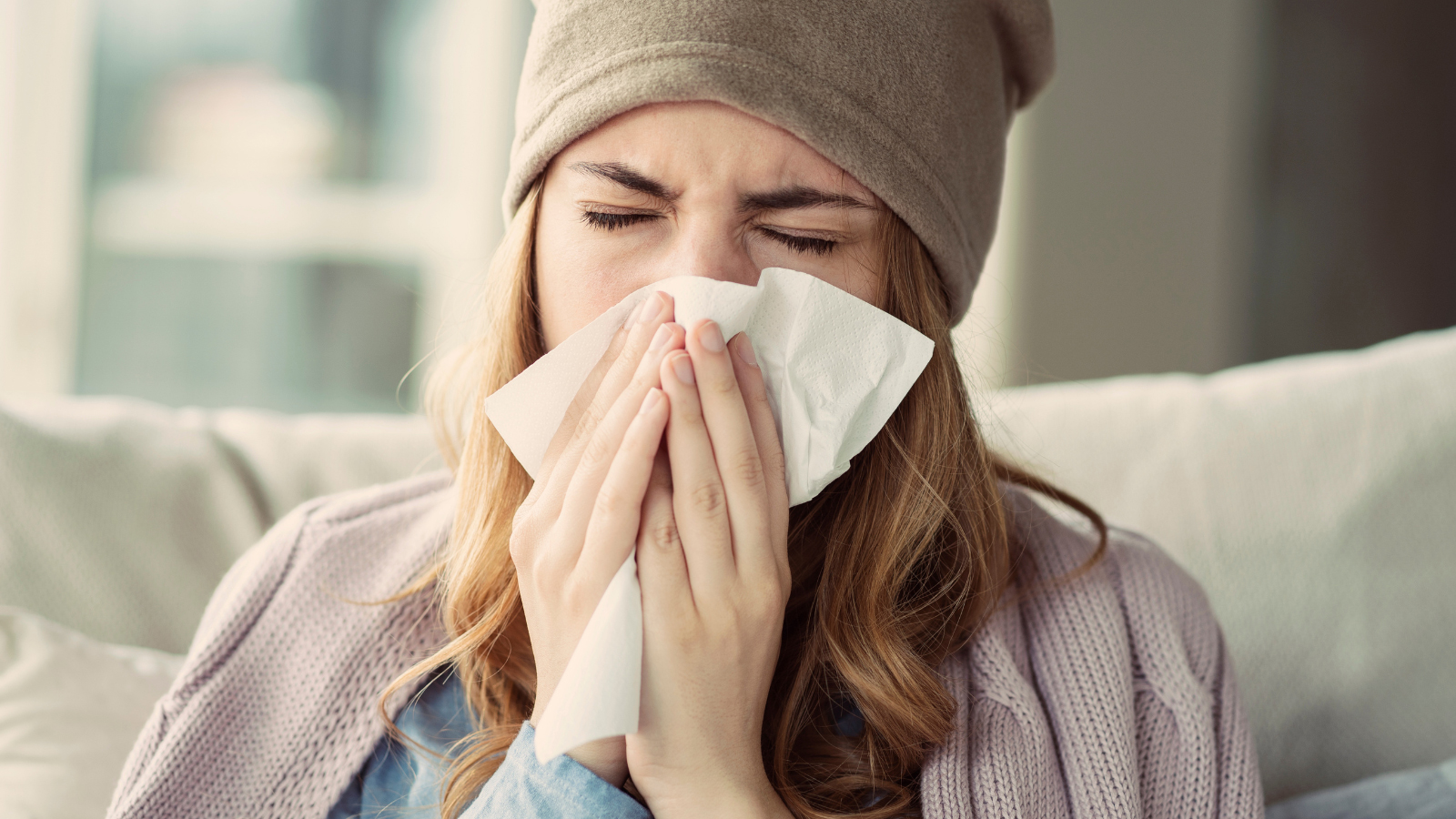Influenza A/B

What is the flu?
The “flu” is an infection in the lungs and breathing passages caused by the influenza virus. It can cause mild to severe illness.
There are different strains, or types, of the flu virus from year to year, i.e. “type A” and “type B.”
Influenza is very contagious. Generally, people spread the virus to others through respiratory droplets. You can help prevent spread and lower the chances of getting infected by practicing good health habits: Wash your hands with soap and water. Stay away from people you know are sick. Get the flu vaccine every Fall. Some years the flu vaccine is more effective than others. But even in years when it is less effective, it still helps prevent some cases of the flu. It can also help keep you from getting severely ill if you do get the flu.
Unlike the common cold, the flu comes on suddenly and the symptoms can be more severe
- Fevers and chills
- Cough
- Congestion
- Sore throat
- Runny nose
- Extreme fatigue
- Headache and/or body aches
- Some people may have vomiting and diarrhea.


Most people with the flu get better on their own within 1 to 2 weeks.
Home treatment is usually all that is needed:
- Antivirals, such as Tamiflu, may shorten the duration of symptoms if begun within 48 hours of symptoms
- Get plenty of rest
- Drink plenty of fluids
- Manage fever and pain with acetaminophen or ibuprofen. Read and follow all instructions on the label.
- Do not smoke, and avoid secondhand smoke
- Try over-the-counter cough or cold medicine. Read and follow all instructions on the label.
- A humidifier may help alleviate cough
Although the flu can make you feel very sick, it usually doesn’t cause serious health problems. However, some people may need to go to the hospital because of the flu. This is because the flu can cause a serious lung infection called pneumonia. People who are at higher risk of getting very sick from the flu include:
- Age 65 or older
- Young children (under 5 years old, and especially under 2 years old)
- Pregnant women
- People with certain other medical problems such as underlying lung problems
At Getuwell’s same-day urgent care clinics in Georgia, we provide rapid flu testing and personalized treatment to help you feel better, faster. Whether it’s type A or B, our team is here to guide you every step of the way with no appointment needed. Call us now!
Site Locations
We have three locations in the Metro Atlanta area, including Sandy Springs, Peachtree Corners (Norcross), and Johns Creek.
Sandy Springs
Peachtree Corners
Johns Creek
Sandy Springs
Sandy Springs
369 Sandy Springs Circle, Sandy Springs, GA, 30328Mon-Fri: 8:00 AM – 6:00 PM
Sat-Sun: 9:00 AM – 5:00 PM
Peachtree Corners
Peachtree Corners
3020 Holcomb Bridge Rd., Norcross, GA 30071Mon-Fri: 9:00 AM – 5:00 PM
Sat-Sun: Closed
Johns Creek
Johns Creek
10475 Medlock Bridge Rd. Building 800, STE 820, Johns Creek, GA 30097Mon-Fri: 9:00 AM – 4:00 PMSat-Sun: Closed
Make sure to contact your doctor and notify them of your health condition
Call 9-1-1 anytime if you think you may need emergency care. For example, call if:
- You have severe trouble breathing
- You have constant chest pain or pressure
- You are severely dizzy or lightheaded
- You are confused or can’t think clearly
- You have pale, gray, or blue-colored skin or lips
- You pass out or are very hard to wake up
- You have weakness or drooping on one side of the face
- You have weakness or numbness in an arm or a leg
- You have a severe headache
- You have a seizure
You can learn more about the flu by visiting the CDC (Centers for Disease Control and Prevention) Website
https://www.cdc.gov/flu/about/index.html

